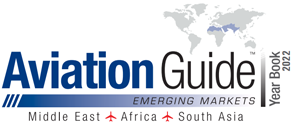The UK aviation industry’s skills shortage continues to be exacerbated by a failure to reach an agreement on the movement of labor across borders following the country’s departure from the European Union (EU). Marc Bailey, chief executive of the British Business & General Aviation Association (BBGA), told the group’s conference recently that high-level political obstacles continue to mean that UK companies have restricted access to pilots and maintenance professionals from other European countries.
“Without doubt, there has been an impact because positions have hardened [between the UK and the EU],” Bailey commented. “We expected to see bilateral agreements [on immigration and recognition of qualifications] coming to fruition in a couple of years, and it’s not at the UK Civil Aviation Authority and EASA, but at a political level there is not a will to have them, so progress on agreements has been weaker than a lot of us would have hoped.”
The UK government remains at loggerheads with the EU over UK demands to amend aspects of the terms under which the country left the community in January 2020. These mainly hinge on disagreements over how cross-border trade is regulated between the British mainland and Northern Ireland.
According to Bailey, the UK industry needs to generate its own flow of fresh talent, with the urgency of human resources challenges having increased through the Covid pandemic. He called for a more consistent approach to providing training that leads to attractive employment opportunities for younger people and also for older recruits who may want to retrain.
In February 2021, with the support of the UK Department for Transport, an industry partnership (including BBGA) created the Aviation Skills Retention Platform as a free service to help companies fill vacancies. A more recent initiative has been the launch of the TalentView platform, which connects young people to educational opportunities.
Bailey concluded that the UK industry must continue to press for a consistent approach to developing centers of excellence for training. These, he said, should have strong connections with organizations in other countries, such as the ROC college in the Netherlands, and ensure that the UK is seen as an attractive location for aviation careers.
From January 1, 2023, holders of EASA pilot and maintenance engineer licenses will no longer be permitted to work for UK companies or operate UK-registered aircraft. During the BBGA conference, officials from the UK Civil Aviation Authority advised that companies and their employees should start the process of securing UK licenses well ahead of this deadline. The change will be triggered when exemptions permitted under the EU Withdrawal Act expire and it will further reduce the flexibility for UK aviation businesses, according to the CAA’s head of airline licensing David Kendrick.










